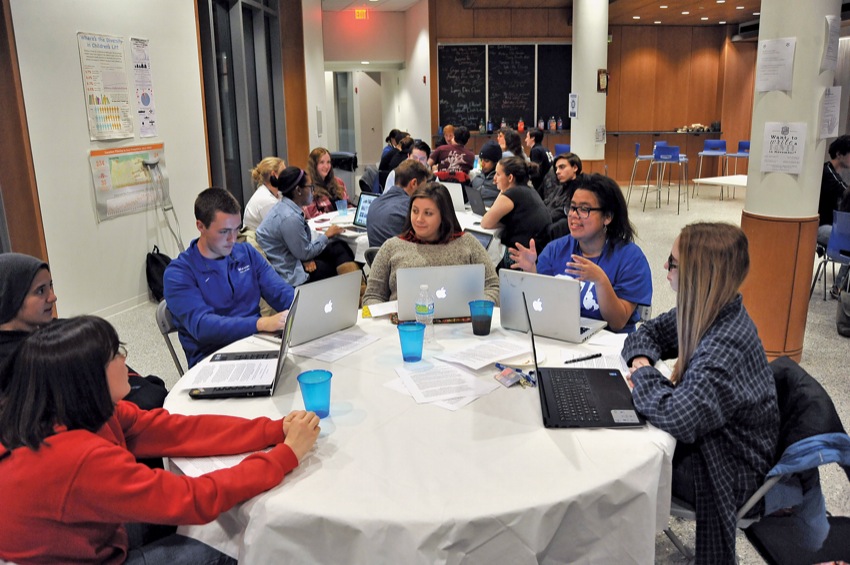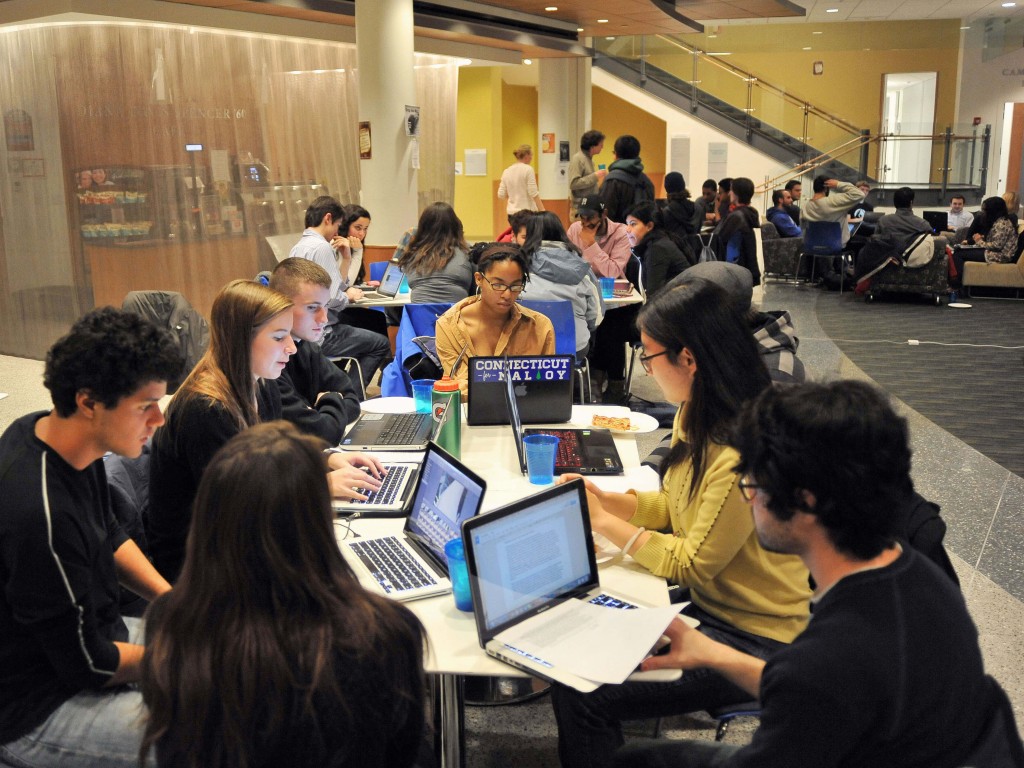Practicing multi-perspective problem solving

The world’s biggest problems won’t be solved by politicians alone but by experts and advocates from many different fields.
That’s why professors Geoffrey Collins and Adam Irish are bringing today’s political science and geology students together in one room to debate real environmental issues in a simulated negotiation that shows them how complicated yet important these interactions are.
“For a lot of students, it’s hard to understand that when you confront a problem like watersheds or climate change, these aren’t problems that coercion or single-state behavior can solve. These are collaborative, cooperative issues,” said Irish, whose “International Politics” students were paired up with students in Collins’s “Geology” course through the “Politics and Global Chance” course Connection during the fall semester.
Collins began doing the simulations several years ago with now-retired political science professor Darlene Boroviak, having students look at issues ranging from the Antarctic Treaty to the United Nations Law of the Sea.
“We wanted to come up with a Connection that would emphasize the fact that many of the pieces of politics that cut across international boundaries have to do with these global environmental problems that confront us,” Collins said. “At the same time, I wanted my students to realize that you can know all kinds of things about scientific theories, but when it comes to making decisions about things in the real world, science doesn’t always rule.”
In the latest version of the simulation, the students were asked to negotiate international treaties among groups of nations that share a river basin.
Daniela Pena ’18, who plans to major in political science, represented Mali in a debate over the Niger River. She said the biggest challenge was considering how the needs of other nations affected her country.
“This simulation really put world issues into perspective for us and made us aware that it’s not all about political theory,” Pena said.
For Victor John ’15, an international relations major, the conversation turned toward the threat of ISIS in Iran, Iraq and Syria. In the end, his group agreed on shared use of the Tigris and Euphrates rivers in exchange for a military agreement—a diversion that spurred Irish to point out the need for strict agendas.
“I think political scientists should talk to real scientists more,” John said. “The more we can encourage understanding and discussion across disciplinary lines, the better we can understand and eventually solve the issues and conflicts that we face today.”
Margaret “Maggie” McDonough ’15, an environmental science major, advised countries in the Brahmaptura and Ganges River Basin. One of the challenges was getting all players to understand how the actions or inactions of one country upstream could affect countries downstream.
McDonough was on the other side of the debate when she took “International Politics” her freshman year and called the simulation “an interesting approach to a complex problem.”
“As a scientist, and going into a profession in the environmental science area next year, it would be rare that I would only have to communicate and deal with other scientists,” she said. “The approach Wheaton is taking, which involves the connecting of multiple disciplines, allows us to examine an issue from both sides of the coin.”

